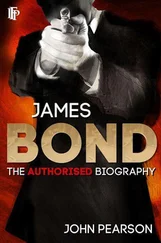The Belgian philosopher Raoul Vaneigem might have had the measure of the phenomenon when he commented, ‘There are more truths in twenty-four hours of a man’s life than in all the philosophies.’ Hancock’s character would have devoured the remark. His eager quest for easy knowledge was a doff of the Homburg to the Reader’s Digest cum Teach Yourself culture of the day. This reached comic heights as he struggled between Bertrand Russell and the dictionary in that same bedsit episode, before concentration plummeted and he took refuge in a whodunnit, Lady, Don’t Fall Backwards . The lad’s conversation is peppered with tortured quotes and gaffes of schoolboy-howler horror. When John Le Mesurier’s plastic surgeon describes a potential model for Tony’s new nose as ‘aquiline’, Hancock’s response is, ‘That means you can use it under water, doesn’t it?’ But there is no consistency: ‘“This is a far, far better thing I do now than I have ever done” – Rembrandt!’ is compounded at a later date by the double sting in the tail of ‘Did Rembrandt look like a musician? Of course she didn’t!’ Often the character displayed an ornate use of language totally out of sync with the times, but entirely in keeping with the holy grail of self-education. As he prepares to get ready for a night on the town, he declares, ‘Time the peacock showed his feathers, I fancy.’ But then in no time at all we are brought down to earth by the uncouth slang of ‘ratbag’, ‘bonkers’, ‘stone me!’ and ‘a punch up the bracket’.
The turgid posturing is not the stuff of youth culture, and it is so easy to forget how young they all were. When Hancock’s Half Hour first went on air, its star was only thirty – albeit it has been said he was born middle-aged – and its two writers a mere twenty-four. The point is that at certain levels the show tapped into the preoccupations of the young in an amazing way. Young people had at last discovered that they had the money that had always been denied them, to use now at the time of their greatest energy and vigour. In one early radio show Hancock found himself in a dance hall of the time, the sequence now as secure an evocation of its era as it is possible to imagine. Characteristically our hero is unimpressed. When Bill asks him what he thinks of the Palais, he replies he feels ‘like Marty standing here’, a reference to the eternal wallflower portrayed in Ernest Borgnine’s current film hit. It is never the intention that Hancock should fit in: ‘I’m fed up with this chewing gum – I nearly swallowed it three times – swinging this perishing key chain’s getting on me nerves.’ In an impressive cameo Bill Kerr later departs from his usual characterisation to play a convincing version of the Marlon Brando street-wise hoodlum who sends panic through the dance hall. ‘I’ve never seen a hokey cokey break up so quickly in me life,’ observes Tony. But at other times he was more than content to frequent the frothy coffee outlets, the protest marches, the beatnik milieu.
Many have commented that the decade of Hancock’s Half Hour was also that of Look Back in Anger , that Hancock corresponded to a comic version of Osborne’s Jimmy Porter, an angry – or at least frustrated – young man in a faux middle-aged shell. In one of the less typical radio episodes, The East Cheam Drama Festival , a third of the show is dedicated to a pastiche entitled Look Back in Hunger by John Eastbourne. As an exercise it is superficially funny, but in many ways redundant. Galton and Simpson through Hancock, their mouthpiece, were the comic complement to everything Osborne and his contemporaries represented. Porter was the first to rail at the excessive boredom of the British Sabbath – ‘God, how I hate Sundays! It’s always so depressing, always the same.’ Galton and Simpson took the disaffection and made it into arguably their most successful radio half hour. But there was never a sense that they were parodying the earlier work, nor were they consciously doing so. Even their most accomplished television script for the comedian, The Blood Donor , was pre-empted by Porter’s query, ‘Have you ever had a letter, and on it is franked, “Please Give Your Blood Generously”?’ When Porter, in an attempt to explain his supposed non-patriotism, declaims, ‘We get our cooking from Paris, our politics from Moscow and our morals from Port Said,’ we can almost hear the voice of Hancock and it becomes funny – or funnier – when we do. If one sets aside the emotional undertow of the play, there are passages – not least the more verbose monologues – that would become hilarious if Hancock were enacting them, in the same way that long swathes of Galton and Simpson dialogue would lose much comic lustre if performed by straight actors with no thought of comedy on their agenda. It is all in the perception.
While Hancock may share Porter’s feisty indignation, for all his bluster he lacks his overriding self-confidence. Jimmy always knows he is right. Hancock is never too sure. He may rail at the petit-bourgeois whim for having plaster ducks on the wall, while knowing full well he has them on his own. As the television critic Peter Black pointed out, ‘A deeper aspect of this was that he perfectly well knew it: the best part of the Hancock creation was his stoical acceptance of himself. He knew in his heart he was doomed.’ We certainly never knew which way he would turn. Conned by the consumer giveaway culture in one episode, in the next he can be talking like an ombudsman: ‘Ten packets of that muck! Do less damage taking your shirts down to the river and bashing them with a lump of rock.’ He is punctilious as he sets out his stance to the vicar at the tea table: ‘I’m no snob. It’s just that I think that if people expect to sit down at high-class tables, they can at least take the trouble to learn how to conduct themselves in a proper and mannerly fashion.’ Then, after a pause, ‘If you’re not having any more tea, can I pour my grouts in your cup?’ One of nature’s committed aristocrats one moment – his rare blood group is enough to convince him of that – the shabby keeping up of appearances becomes his very life force the next. Forced by circumstances to a menu of bread and dripping for Sunday lunch, he hastens to draw the curtains lest the neighbours should see a man of his calibre (always with the stress on the middle syllable) reduced to such means. As a comic icon he was and remains classless, and not merely because he succeeded in cutting across all demographic barriers. If one could have cloned Hancock a couple of times, only his size would have held him back from enacting all three parts in that classic sketch that featured John Cleese, Ronnie Barker and Ronnie Corbett. The conceit, like the idea of living in a classless society, is, of course, an illusion, one Hancock and his writers understood only too well.
Once entrusted with their task by producer Dennis Main Wilson and script editor Gale Pedrick, Galton and Simpson proved themselves magicians of the deftest skill in the way in which week in, week out they rang the changes on the character and his circumstances. Sometimes he was affluent; sometimes he had only one shirt to his name. Sometimes he was a failed theatrical, sometimes the successful star of a radio or television comedy series. Sometimes he was a law-abiding member of the community, sometimes an army deserter who had lain low in a cave on the Yorkshire Moors for six years. Sometimes the continuity might appear suspect, but the almost dreamlike flexibility never stood in the way of the naturalism in comedy which all three set out to achieve at the start. As Alan Simpson has commented, ‘He was what we wanted him to be at any given time. That was the great freedom one had in those days. On one show we had him as a barrister. Nobody commented on the fact that you need seven years training, you need diplomas. Nobody cared.’ Anyone asked in an over-the-top television quiz to name a top racing driver who in his spare time was a purveyor of quack medicines, who had served in the Foreign Legion and whose grandfather had been a member of ‘The Three Tarzans’ music-hall act, could do worse than hazard a guess at the personage of Anthony Aloysius St John Hancock, to give the character its full monicker. The question might as easily have been to nominate the derring-do test pilot who was stolen from his cradle by the gypsies, went on to inherit his great-uncle’s newspaper empire and ended up living as a hermit on Clapham Common. They both tick all the boxes. The Hancock invention was its own Pandora’s Box of possibilities.
Читать дальше












